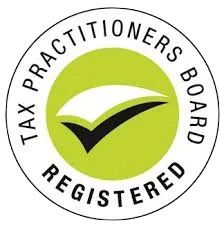
Thinking of Buying a Vehicle for Your Business? Key Considerations Before You Commit
Thinking of Buying a Vehicle for Your Business? Key Considerations Before You Commit
Purchasing a vehicle for your business can be a strategic move, whether for transporting goods, visiting clients, or simply enhancing operational efficiency.
But before you rush into a purchase, it’s essential to consider how the decision fits with your business needs, financial position, and tax obligations.
Here are the key factors every business owner should consider before purchasing a work vehicle.
1. Business Use vs Private Use
Before you buy, think about how the vehicle will be used. If it’s going to be used for both business and personal travel, you’ll need to keep accurate records — such as a logbook — to claim only the business-related expenses. The ATO requires this to calculate eligible deductions for things like fuel, servicing, and depreciation.
2. Tax Implications
There are limits to what you can claim. For the 2025–26 financial year, the car limit for depreciation is $69,674. Even if your vehicle costs more, that’s the maximum value you can use for tax depreciation calculations.
If you’re registered for GST, the maximum GST credit you can claim is $6,334 — 1/11 of the car limit. And if you’re looking at a high-end model, be aware of Luxury Car Tax (LCT). Vehicles priced above the LCT thresholds will attract a 33% tax on the amount above the limit — and this tax isn't deductible or eligible for GST credits.
3. Ownership Structure
Will the vehicle be purchased in the name of the business, a company, a trust, or under your personal name? The ownership structure can affect how you claim expenses, manage liability, and handle resale or fringe benefits tax (FBT) obligations.
4. Finance Options
Weigh up whether to buy outright, lease, or finance. Each option has different cash flow and tax implications, so it’s worth talking to your accountant about what’s most appropriate for your business structure and goals.
A work vehicle is a significant investment. Speaking with your accountant or adviser before you purchase can help ensure you understand the full financial and tax picture — and choose a vehicle that works just as hard as you do.









